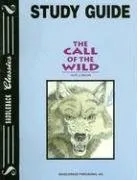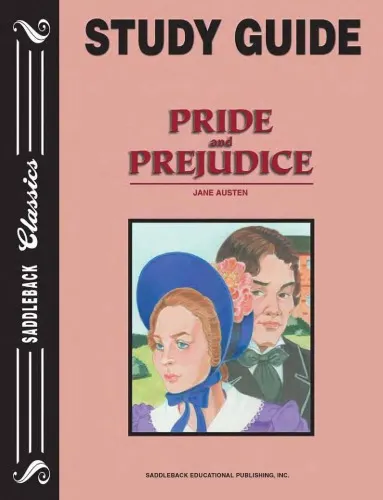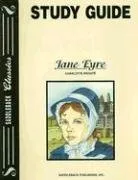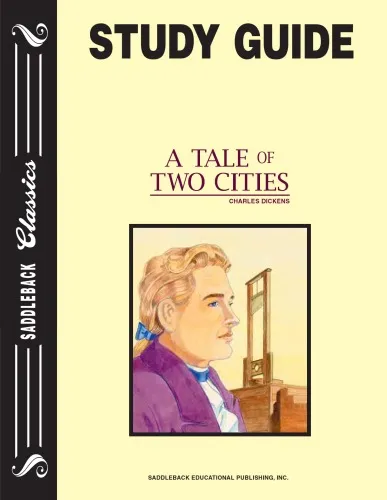The Call of the Wild Study Guide
4.0
بر اساس نظر کاربران

شما میتونید سوالاتتون در باره کتاب رو از هوش مصنوعیش بعد از ورود بپرسید
هر دانلود یا پرسش از هوش مصنوعی 2 امتیاز لازم دارد، برای بدست آوردن امتیاز رایگان، به صفحه ی راهنمای امتیازات سر بزنید و یک سری کار ارزشمند انجام بدینکتاب های مرتبط:
Persian Summary
معرفی کتاب 'راهنمای مطالعه ندای وحش'
کتاب 'راهنمای مطالعه ندای وحش' یکی از منابع بینظیر برای دانشجویان و علاقهمندان به آثار Jack London میباشد که به تجزیه و تحلیل داستانی پرهیجان و مهیج در قلب طبیعت وحشی و حیات غیر قابل پیشبینی در شمال کانادا میپردازد. این راهنما با ارائه توضیحاتی دقیق و جامع به خوانندگان کمک میکند تا پیامهای پنهان در این اثر برجسته را به خوبی درک کنند.
خلاصه کتاب
داستان با توصیف زندگی 'Buck'، سگی قدرتمند و فرمانده در خانهای اشرافی در جنوب کالیفرنیا آغاز میشود. با تغییرات زندگی او که به یک سگ کاری در آلاسکا تبدیل میشود، روایت وارد دنیایی جدید و غیرمنتظره میشود. Buck در معرض سختیها و خطرهای مختلفی قرار میگیرد و باید با غریزههای درونی خود ارتباط برقرار کند تا بقا یابد.
نکات کلیدی
- تکامل شخصیت Buck به عنوان سمبل تطبیقپذیری و مقاومت در برابر شرایط سخت.
- بررسی تقابل بین تمدن و طبیعت وحشی و نحوه تعامل آنها با انسان و حیوان.
- شناخت ویژگیهای رهبری و اهمیت پیروی از غرایز در مواقع بحرانی.
نقلقولهای مشهور
"بینشاط بود و مشتاقانه نگاه میکرد به جهان، به مانعهای جدید و اکتشافاتی که در پیش داشت." - Jack London
"در آن سرمای غیرقابل تحمل، روح و جسم همیشه در تلاش بودند، میراثی از نیاکان خودشان." - Jack London
چرا این کتاب مهم است؟
کتاب 'ندای وحش' نه تنها داستانی جذاب و هیجانانگیز است، بلکه به عنوان تحلیل فلسفی و روانشناسی از غرایز حیوانی و غریزه بقا نیز شناخته میشود. این اثر به خوبی نشان میدهد که چگونه محیط و شرایط میتوانند بر نگرش و رفتار موجودات زنده تأثیر بگذارند. برای هر کسی که به داستانهایی با مضامین عمیق اجتماعی و فردی علاقهمند است، مطالعه این کتاب ضروری میباشد.
Introduction to "The Call of the Wild Study Guide"
Welcome to this comprehensive study guide for Jack London's seminal work, "The Call of the Wild." This guide aims to deepen your understanding of the novel's profound themes, compelling characters, and rich narrative craftsmanship. As a literary classic, "The Call of the Wild" explores the primal instincts of man and beast alike, providing an exceptional ground for educational exploration and discussion.
First published in 1903, "The Call of the Wild" follows the tumultuous transformation of Buck, a pampered St. Bernard-Scotch Collie, who is stolen from his comfortable California home and sold into the harsh conditions of the Yukon wilderness during the Klondike Gold Rush. This study guide will not only provide a detailed summary of the book but also highlight key takeaways, memorable quotes, and the reasons why this novel continues to resonate with readers over a century later.
Summary of the Book
"The Call of the Wild" is an exhilarating tale of resilience and adaptation. As the narrative unfolds, Buck is torn away from his cushy life and thrust into the unforgiving extremes of the Alaskan wilderness. Under the brutal tutelage of various masters, including the vile Hal and the kind-hearted John Thornton, Buck learns the 'law of club and fang,' fighting for survival amidst the cutthroat dynamics of a sled dog team.
The story charts Buck's journey from domesticated pet to master of the wild. He progressively taps into his ancestral instincts, which culminate in his full embrace of the wild after John Thornton, his final benevolent master, meets a tragic end. Buck's transition is not merely physical but deeply symbolic, representing the universal conflict between civilization and the innate call of nature. The novel ends with Buck's complete transformation as he leads a wolf pack, answering the wild's call fully.
Key Takeaways
- Survival and Adaptation: Buck's journey exemplifies the strength and adaptability required to overcome life's adversities.
- The Power of Instinct: Buck's character evolution underscores the theme of innate instincts prevailing over learned behavior.
- Nature vs. Nurture: The narrative explores the tension between civilized existence and the call of the wild, probing the essence of being.
- Loyalty and Sacrifice: Buck's bond with John Thornton highlights themes of loyalty, love, and the profound impact of kindness.
Famous Quotes from the Book
"He was beaten (he knew that); but he was not broken."
"Deep in the forest a call was sounding, and as often as he heard this call, mysteriously thrilling and luring, he felt compelled to turn his back upon the fire and the beaten earth around it, and to plunge into the forest."
Why This Book Matters
"The Call of the Wild" remains a poignant exploration of the inherent instincts residing in all creatures, reflecting a timeless struggle between civilization and instinctual freedom. Jack London's masterful depiction of the harsh, yet beautiful wilderness, coupled with his insightful commentary on the forces that drive us, makes this novel a powerful study of human nature and animal instinct.
Its relevance extends beyond its historical context, offering a narrative that speaks to contemporary issues such as survival, environmental awareness, and the complex dynamics between humans and the natural world. The novel's enduring popularity is a testament to its compelling storytelling and profound thematic depth, making it a staple in literature curricula worldwide.
دانلود رایگان مستقیم
You Can Download this book after Login
دسترسی به کتابها از طریق پلتفرمهای قانونی و کتابخانههای عمومی نه تنها از حقوق نویسندگان و ناشران حمایت میکند، بلکه به پایداری فرهنگ کتابخوانی نیز کمک میرساند. پیش از دانلود، لحظهای به بررسی این گزینهها فکر کنید.
این کتاب رو در پلتفرم های دیگه ببینید
WorldCat به شما کمک میکنه تا کتاب ها رو در کتابخانه های سراسر دنیا پیدا کنید
امتیازها، نظرات تخصصی و صحبت ها درباره کتاب را در Goodreads ببینید
کتابهای کمیاب یا دست دوم را در AbeBooks پیدا کنید و بخرید
1375
بازدید4.0
امتیاز50
نظر98%
رضایتنظرات:
4.0
بر اساس 0 نظر کاربران
"کیفیت چاپ عالی بود، خیلی راضیام"







